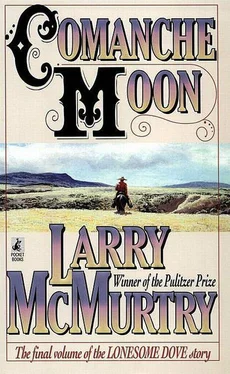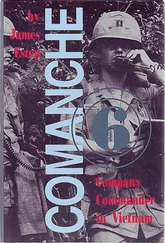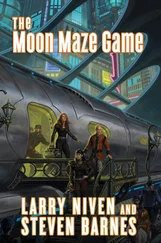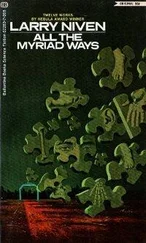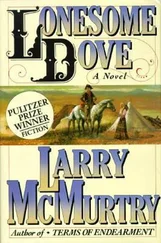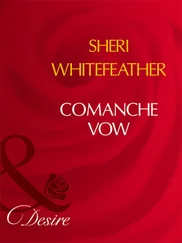From being intermittent, the smell became constant, so constant that Scull could say with conviction that it was not a deer or a pig that was being cooked: it was a horse. He had eaten horse often in his trekking in the West and didn't think he could be mistaken. Somewhere nearby horsemeat was cooking--but why would the smell carry nearly a dozen miles, to the canyon where he had slept?
Then Scull began to notice tracks, many tracks. He was crossing the route of a considerable migration--there were a few horse tracks, but most of the migrating people were on foot. Some were barefoot, some wore moccasins. There were even dog tracks --x was as if a village had decided to move itself across the empty tableland.
Then Scull saw the smoke, which seemed to be rising out of the ground, a mile or more ahead. The smoke rose as if from a hidden fire. He didn't know what to make of it, but he did know that he had begun to feel exposed. He was in plain sight on a bare mesa where a hundred people or more had just passed. Scull looked around quickly, hoping for a ridge, a hump of dirt, or patch of sage--anything that could conceal him, even a hole he could hide in until darkness fell, but there was nothing. Besides, he was marching in stout boots and his tread would stand out like a road sign to anyone with an eye for tracks.
Scull turned and hurried back toward the last cover, doing his best to erase or at least blur his track as he went. Suddenly he felt more exposed than he ever had, in all his years of soldiering; a kind of panic seized him, an overwhelming need to hide until dark came. Then he could come back and unravel the mystery of the smoke and the smell of cooking meat.
Scull hurried back, scrubbing out his tracks as best he could, as he walked--the last ridge had been rocky; he felt sure he could dig under one of them and stay safely hid until dark.
Then he saw the old man, coming toward him along his own track. The minute he saw him he remembered something Famous Shoes had said.
"Ahumado is always behind you," Famous Shoes had told him. "Don't look for him in front.
When he wants you he will appear, and he will be behind you." The memory came too late. The Black Vaquero was following the plain track left by his boots. The old man seemed to be alone, but Scull knew his men had to be somewhere nearby.
The old man had not lived to a great age by being a fool.
Scull decided he would just keep walking, with his head down, pretending he hadn't seen Ahumado, until he was in rifle range.
He shot best from a prone position. When the distance was narrowed sufficiently he would just drop to the ground and fire. With one well-placed shot he could eliminate the Black Vaquero, the old bandit who had harassed the settlers of the border as ferociously as Buffalo Hump had the settlers along the northern rivers.
Of course, the pistoleros would probably run him down and kill him, but then it was not the Scull way to die at home. His brother had been yanked off a whaling ship in the Hebrides and drowned. His Uncle Fortescue had drunk poisoned kvass in Circassia, and his father had been attempting to ice-skate on the frozen Minnesota River when he was overwhelmed by a band of Cree Indians. The Sculls died vividly, but never at home.
Scull had only a hundred yards to walk before he was in rifle range of Ahumado. He didn't mean to risk a long shot, either. The one hundred yards might take him three minutes; then he would have to decide between certain martyrdom and very uncertain diplomacy. If he chose to risk the diplomacy he would have to live until Ahumado chose to let him die, which might be after days of torture. It was a choice his forebears had not had to make. His brother hadn't meant to get jerked out of the whaleboat, his Uncle Fortescue had no idea the kvass was poisoned, and his father had merely been skating when the Cree hacked him down.
Scull walked on; Ahumado came in range; Scull didn't shoot.
Too curious about that smoke, he told himself.
Maybe he'll consider me such a fine catch that he'll ask me to dinner.
Then he saw, to Ahumado's right, four small dark men. To his left a tall man on a paint horse had appeared. The Black Vaquero, indeed, had not been alone.
For a moment, Scull wavered. Only six men opposed him. Ahumado carried no weapon--the only gunman was the skinny man on the paint horse; he could shoot him, grab the horse, and run. His fighting spirit rose. He was about to level his rifle when he glanced over his shoulder and saw, to his amazement, that four more of the dark men were just behind him, within thirty yards. They had risen as if from the earth and they carried bolos, the short rawhide thongs with rocks at each end that Mexicans threw at the legs of cattle or deer, to entwine them and bring them down.
Scull did not level his rifle; he knew he had waited too long. Now it would have to be diplomacy. The fact that the dark men had simply appeared was disturbing. He had looked the terrain over carefully and seen no one; but there they were and the die was cast.
Ahumado came to within ten feet of Scull before he stopped.
"Well, hello from Harvard," Scull said.
"I'm Captain Scull." "You have come just in time, Captain," the old man said.
The man on the paint horse rode up behind him. He had a blinking eye. The dark men stood back, silent as rocks.
"Just in time for what, sir?" Scull asked.
"To help us eat your horse," Ahumado informed him. "That's what we are cooking, over there in our pit." "Hector?" Scull said. "Bible and sword, you must have a big pit." "Yes, we have a big pit," Ahumado said.
"We have been cooking him for three days. I think he is about cooked. If you will hand this man your rifle we can go eat him." The tall pistolero rode close.
Scull handed him the rifle. With the dark men walking behind him, Inish Scull followed Ahumado toward the rising smoke.
Scull stood on the edge of the crater, astonished first by the crater itself and then by what he saw in it. From rim to rim the crater must be a mile across, he judged. Below him, at the bottom of it, were the hundred or more people whose tracks he had seen--men and women, young and old.
They were all waiting. The smoke rose from a pit in the center of the crater, Hector, whose head was missing, had been cooked standing up, in his skin.
The old man, Ahumado, had scarcely looked at Scull since his surrender. His eyelids drooped so low that it was hard to see his eyes. Men had shovelled away the bed of coals that had covered the pit for three days. The coals were scattered in heaps around the pit--many of them still glowed red.
"We have never cooked a horse this big," Ahumado remarked.
"He appears to be thoroughly charred," Scull observed. "You might as well let the feast begin." He felt chagrined. The old man treated his arrival as casually as if he had received a letter announcing the date and arrival time. He had walked into Mexico, convinced that he was proceeding with extreme stealth, and yet Ahumado had read his approach so precisely that he had finished cooking Hector in time for Scull to say grace, if he wanted to.
Now the need he had always had to be as far as he could get from Boston--not just Boston the place but Boston as way of being--had landed him in a crater in Mexico, where a hundred dark people were waiting to eat his horse.
Ahumado made a gesture and the squatting, waiting people rose like a swarm and crowded into the pit around the smoking horse. Knives flashed, many knives. Strips of skin were ripped off, exposing the dark flesh, which soon dripped blood from a hundred cuts. Some who had no knives tore at the meat with their fingers.
"They are hungry but your horse will fill them up," Ahumado said. "We will go down now. I have saved the best part for you, Captain Scull." "This is a big crater," Scull said, as they were walking down. "I wonder what made it?" "A great rock--Jaguar threw it from the sky," Ahumado said. "He threw it long ago, before there were people." "I expect we'd call it a meteor, up at Harvard College," Scull said.
Читать дальше
